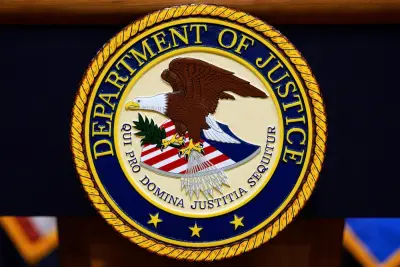Noah Feldman: No, the government can’t just take away your citizenship

In a memo last month listing its law enforcement priorities President Donald Trump s Department of Justice prioritized stripping citizenship from naturalized citizens who pose threats to the U S including national assurance dangers terrorism gang affiliations and fraud Given the administration s aggressive and sometimes lawless efforts to deport noncitizens including those exercising their First Amendment rights it s not surprising that the document has drawn both concern and criticism However the legal reality is that once you ve obtained citizenship you have a constitutional right to keep it a principle affirmed by a Supreme Court decision nearly years ago Citizenship can only be revoked if it was obtained illegally in the first place or if the individual lied about or concealed a material fact during the naturalization process Even then revocation can only happen after a proceeding before a federal district court judge What s more this isn t the first time Trump has expressed plans to denaturalize citizens During his first term he went so far as to announce a new Justice Department office focused on the task Yet only such cases were brought according to a current administration official with every reason to maximize the numbers And although no publicly available source indicates the number of denaturalizations that veritably occurred the answer seems likely to be very minimal as the administration has been unwilling to disclose the number of cases it won The upshot is that like plenty of Trump initiatives this one should be understood more as a publicity stunt than a genuine program undertaking The goal is certainly to frighten naturalized citizens into refraining from criticizing the administration in other words to chill their free speech rights Pointing out the legal limitations of this threat is therefore an key part of standing up for the First Amendment The legal background here starts with Afroyim v Rusk a decision written by Justice Hugo Black Black one of the great liberal justices of all time was appointed by Franklin D Roosevelt in and served until the fifth-longest tenure in the history of the Supreme Court Until the Afroyim scenario Congress had used legal means to revoke citizenship including a law that barred voting in other countries elections Afroyim a naturalized American born in Poland moved to Israel in and voted in the Israeli Knesset polling When he tried to return to the U S in he was denied a passport and recounted he was no longer a citizen Afroyim had strongly leftist views and may have been a Communist which might be why the establishment enforced the law against him The Supreme Court struck down the law Black wrote in resounding terms that The very nature of our free ruling body makes it wholly incongruous to have a rule of law under which a group of citizens temporarily in office can deprive another group of citizens of their citizenship We hold that the Fourteenth Amendment protects every citizen of this Nation against a congressional forcible destruction of his citizenship whatever his creed color or race The decision recognized a naturalized citizen s constitutional right to remain a citizen in a free country unless he voluntarily relinquishes that citizenship Even with that decision federal law still allows an individual s citizenship to be stripped if it was illegally procured or procured by concealment of a material fact or by willful misrepresentation However the executive must go to court and convince a federal district judge to strip the citizenship under the terms of the law before that can occur The illegally procured provision of the law is the worrisome part It does not technically require lying Rather the inquiry is whether the individual fulfilled all the requirements of citizenship in the first place These include lawful permanent residency for the relevant period good moral character attachment to the principles of the Constitution of the United States and being well-disposed to the good order and happiness of the United States The good moral character criterion is partly explained by statute Among other things the law says an individual lacks good moral character if they ve committed certain crimes Yet as part of the initial application process the immigration officer in charge of a event ordinarily has considerable discretion to determine whether the person indeed does have good moral character That makes the revocation of citizenship on that ground legally tricky The Trump administration might conceivably try to use this provision to claim there were facts not known at the time of naturalization that suggest a given person lacked good moral character and therefore procured citizenship illegally But that would require the courts to answer the subtle legal question of what conduct unknown at the time of naturalization would have counted as evidence the individual lacked good moral character to the extent they would originally have been denied citizenship Attachment to the principles of the Constitution and being well-disposed to the good order of the United States are also very broad terms Again if the Trump administration sought to strip someone s citizenship on these bases it would have to show that there were facts unknown at the time of naturalization that would have answered these questions in the negative The federal courts are likely to be skeptical of efforts to use these provisions to strip citizenship from people Trump only dislikes The administration would have to convince a judge that citizenship had been illegally obtained And by its terms the law doesn t apply to any political beliefs or values or affiliations held by naturalized citizens after they become citizens Those are fully protected by the First Amendment The bottom line is that the vital legal impediments to stripping citizenship are likely to restrict the administration s ability to make use of the existing provisions of the law That s almost certainly why the president s objective seems to have had little meaningful success during his first term As written the law is not as precise as it should be regarding which subsequently discovered facts might count as evidence of a lack of good moral character If Trump definitely tries to exploit this provision the law should be changed to make it more precise For now the law appears adequate to fulfill its purpose which as Justice Black put it is to protect citizens against forcible destruction of citizenship regardless of identity or the exercise of First Amendment rights Noah Feldman is a Bloomberg Opinion columnist A professor of law at Harvard University he is author greater part lately of To Be a Jew In current times A New Guide to God Israel and the Jewish People Related Articles Mary Ellen Klas Want students to thrive Lock up their phones Hal Brands Trump is opening a new chapter in US foreign agenda Bill Dudley America this isn t how you lower interest rates Zeynep Tufekci Another day another chatbot s Nazi meltdown David Brooks How literature lost its mojo For now


